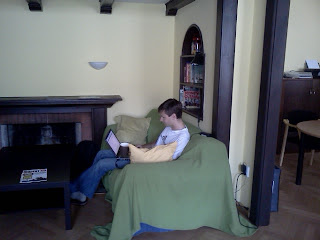One of the cool things about coworking is that a lot of people who decide to get involved in it really care about the idea and the value it has to offer, and not just about the business as a business. Sam Spurlin‘s several recent posts on this blog attest to this. Another sign of it comes from the grass roots cooperation across thousands of coworking spaces around the world that have contributed to coworking.com. The particular example I want to write about now are four options for free office sharing options across coworking spaces around the world: (1) the Coworking Visa, (2) The Prague Coworking Visa, (3) Loosecubes, and (4) Jelly.
1. The Coworking Visa.
The coworking visa is one of the greatest largely-unknown sources of added value to participating coworking spaces, and also one of the most impressive examples of value-added cooperation across competing businesses I know of in any industry. If you’re a member of Locus or of another coworking space that participates in the visa program, you may know about it already. This is an informal group of about 500 coworking spaces around the world that have agreed to let members of other “Visa”-participant coworking spaces use their space for free (usually for up to 3 days, but the terms depend on the space; Locus is free for up to a month, but limited by the terms of the other coworking space). Here’s a link for details with the list of participating spaces and their terms, organized geographically.
The coworking visa was the fortunate brain-child of two of the women leaders of the coworking movement, Julie Duryea of Souk in Portland, Oregon (now run by someone else and maybe under a different name) and Susan Evans of Office Nomads in Seattle, Washington. They proposed it on a google group to a network of people running coworking spaces around the world, and it was almost immediately successful.
2. The Prague Coworking Visa.
A group of coworking spaces in Prague (including Locus) were inspired by this visa program to create a Prague version of the visa that allows members of each space to use the other spaces for up to 25% of their membership time. See details here.












